
The Russians were looking for us. They had a list of names, including ours, and they were approaching us.
We had been reporting on the Mariupol siege for two weeks and were the only remaining international journalists in the city. We covered it from a hospital where armed individuals walked through the corridors. Some surgeons gave us aprons to pretend to be medical personnel.
Suddenly, at dawn, a dozen soldiers broke into the hall where we were. “Where are the journalists?” , they asked.
They had blue ribbons on their arms, the color of Ukraine. For a moment I considered the possibility that they were Russians in disguise. But I finally took a step forward and identified myself.
“We came to get you out of here,” they told me.
The walls of the operating room were shaken by artillery and machine-gun fire and it seemed that we were safer inside. But the Ukrainian soldiers were ordered to take us.
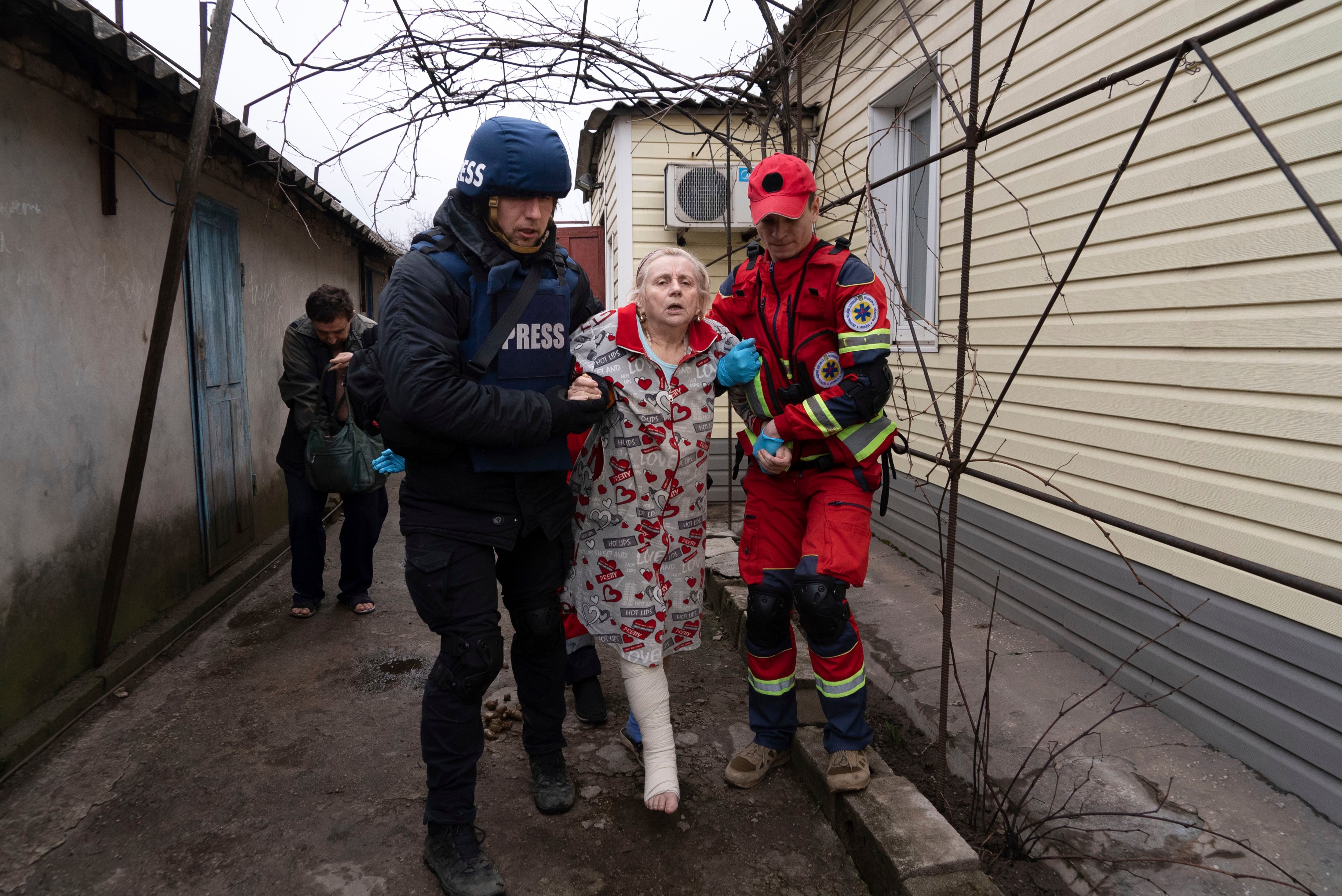
We ran into the street, abandoning the doctors who had sheltered us, the pregnant woman who had been injured in a bombing raid and the people who slept in the hallways because they had nowhere to go. I felt terrible leaving them.
For nine endless minutes, maybe ten, we passed apartment buildings destroyed by bombs. There was an explosion nearby and we hit the floor. We measured time according to the explosions, one bomb at a time. We were holding our breath. Every outburst shook me and my hands were cold.

We arrived at a gate and people with armored vehicles took us to a dark basement. Only then did we learn from a policeman that we knew why Ukrainians had risked their lives to get us out of the hospital.
“If they get caught, they'll put them in front of a camera and make them say that everything they shot was fake,” he told me. “All their efforts and everything they did in Mariupol will have been in vain.”
The agent, who once asked us to show the world the death of his city, now begged us to leave there. He drove us to a place with thousands of rickety cars preparing to leave Mariupol.
This happened on March 15. We didn't know if we'd make it out alive.

____
I grew up in Kharkiv, 32 kilometers from the Russian border, and as a teenager I learned to use guns in school. It seemed to me that there was no point in that instruction. Ukraine, I said to myself, is surrounded by friends.
I have covered wars in Iraq, Afghanistan and the disputed territory of Nagorno-Karabakh, trying to show the world the devastation they produce firsthand. But when the Americans, and then the Europeans, evacuated their embassies from Kiev this winter and when I saw the deployment of troops from Russia near my city, all I thought was, “poor my country.”
In the early days of the war, the Russians bombed the huge Freedom Square in Kharkov, which I frequented when you were 20 years old. He knew that for the Russians the port of Mariupol, in the east of the country, was a strategic booty prized for its location by the Sea of Azov. That is why, on the eve of February 23, I went there with my year-old colleague Evgeniy Maloletka, Ukrainian photographer of the Associated Press, in his white Volkswagen van.
On the way we started to worry about things like spare tires and we found on the internet an individual from the area willing to sell us one in the middle of the night. We explained to him and to the cashier of a 24-hour store that we were preparing for war. They looked at us like we were crazy.
We arrived in Mariupol at 3.30 in the evening. The war started an hour later.

About a quarter of Mariupol's 430,000 residents left the city in the early days of the invasion. But few people thought there was a war coming, and by the time they realized they were wrong, it was too late to leave.
As a result of shelling, the Russians cut off the supply of electricity, water, food and, finally, cell phone, radio and television services. The few remaining journalists left before the last communications were cut off and a total blockade was established.
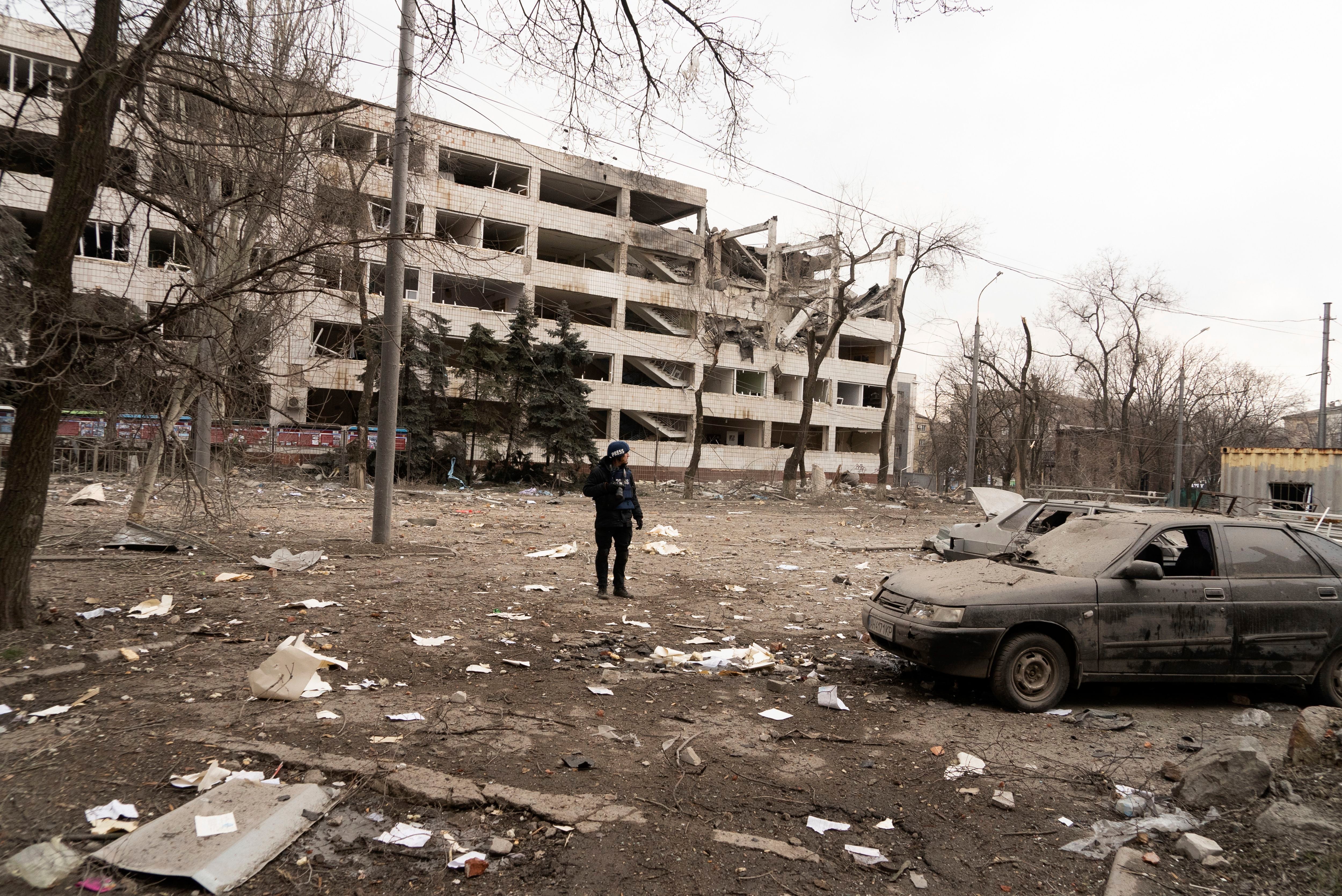
The lack of information in the midst of a blockade achieves two objectives.
The first is to generate chaos. People don't know what's going on and they fall into panic. At first, we didn't understand why Mariupol fell so fast. I now know that this was due to the lack of communications.
The second objective is impunity. As there is no information, there are no photos of collapsed buildings or dead children and the Russians can do whatever they want. If it weren't for us, nothing would be known.
That is why we took so many risks, so that the world could see what we saw. And that's what made the Russians so angry with us that they tried to capture us.
I never, ever felt that breaking the silence was so important.
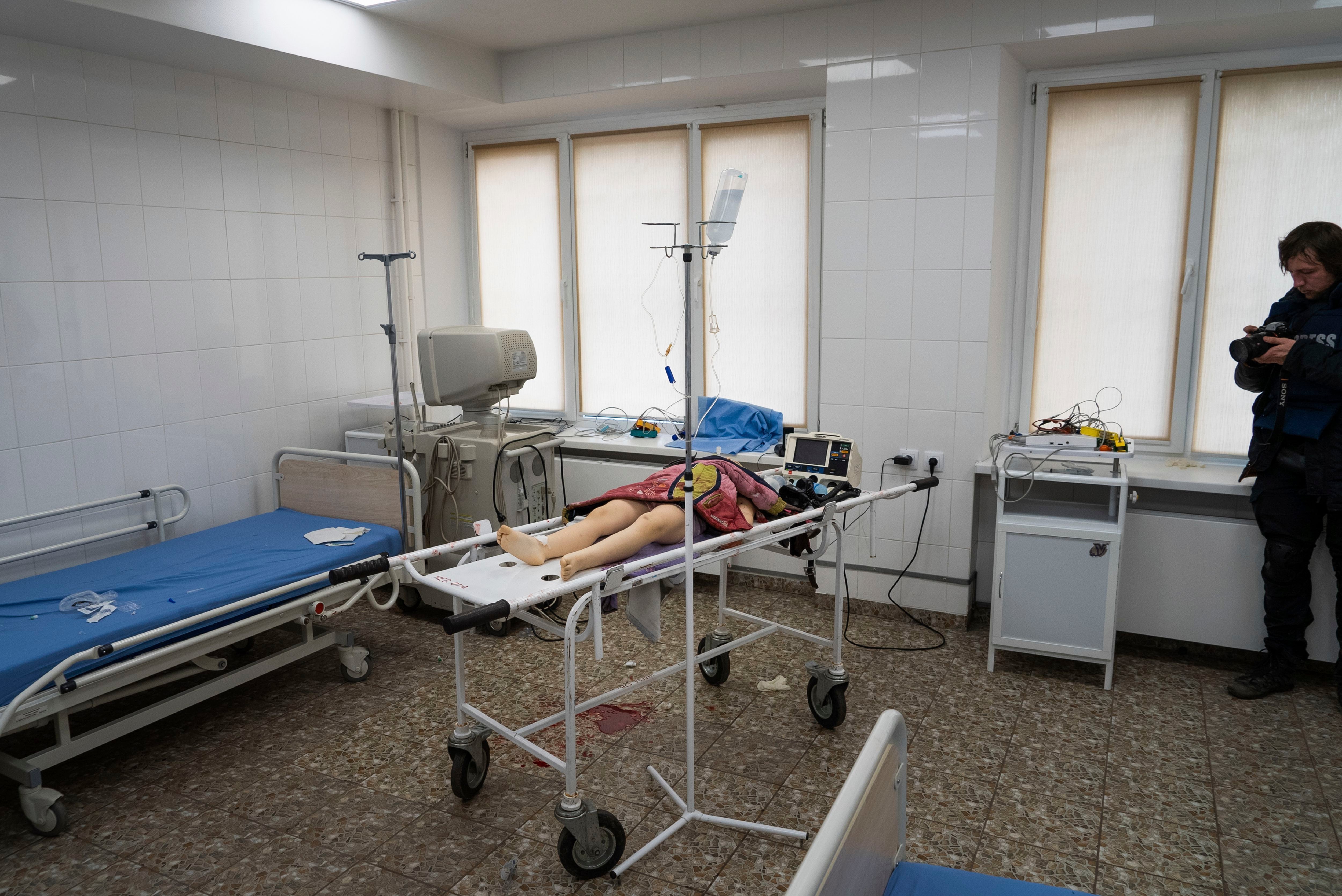
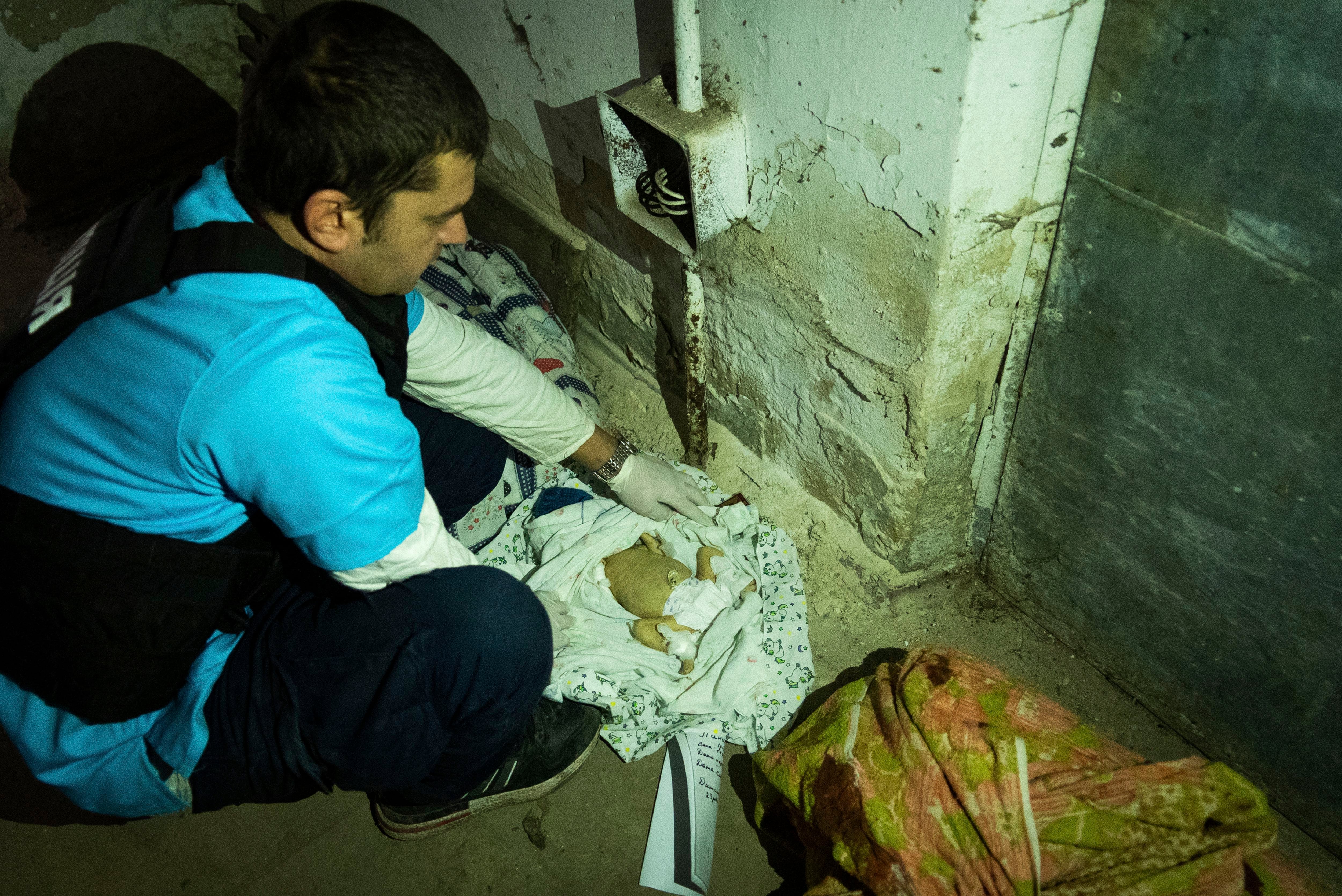
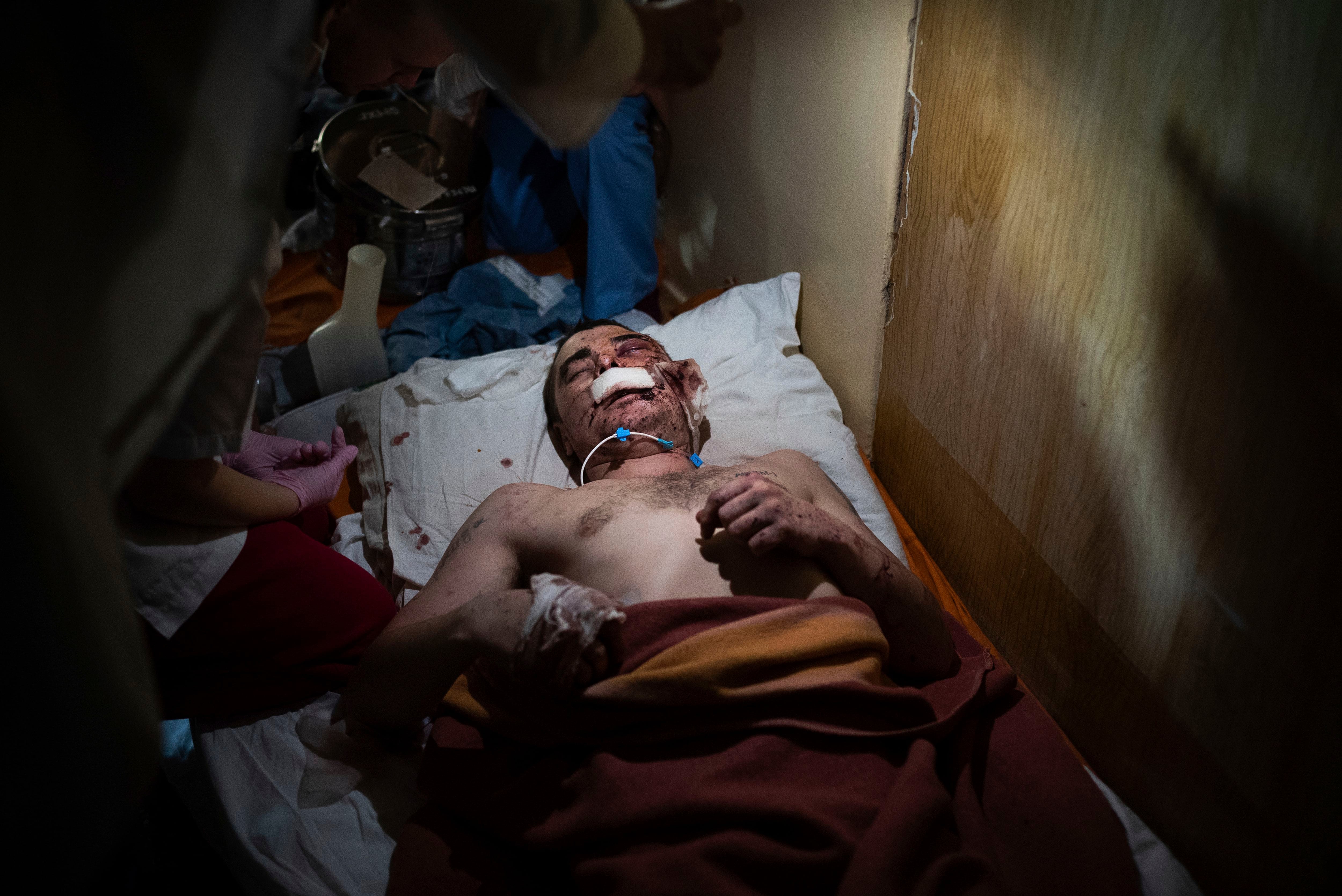
Death began to haunt soon. On February 27, we saw how doctors were trying to save a little girl injured by shrapnel. They didn't make it.
A second girl died. And a third. The ambulances stopped picking up wounded because there was no way to communicate with them and they could not be exposed to shelling.
The doctors asked us to film the families who carried their dead and wounded themselves, and they let us use their generators to charge our cameras. Nobody knows what is happening in our city, they told us.
The bombs hit the hospital and the houses around it. They broke the windows of our van, opened a gap in the side of the car and blew a tire. Sometimes we went out to film a house on fire and returned between the explosions.
There was a place in the city where you could still get a connection, next to a looted grocery store on Budivel'nykiv Avenue. Once a day, we drove there and crouched by a ladder to transmit photos and videos to the world. The staircase didn't offer much protection, but we felt a little more safe than if there was nothing.
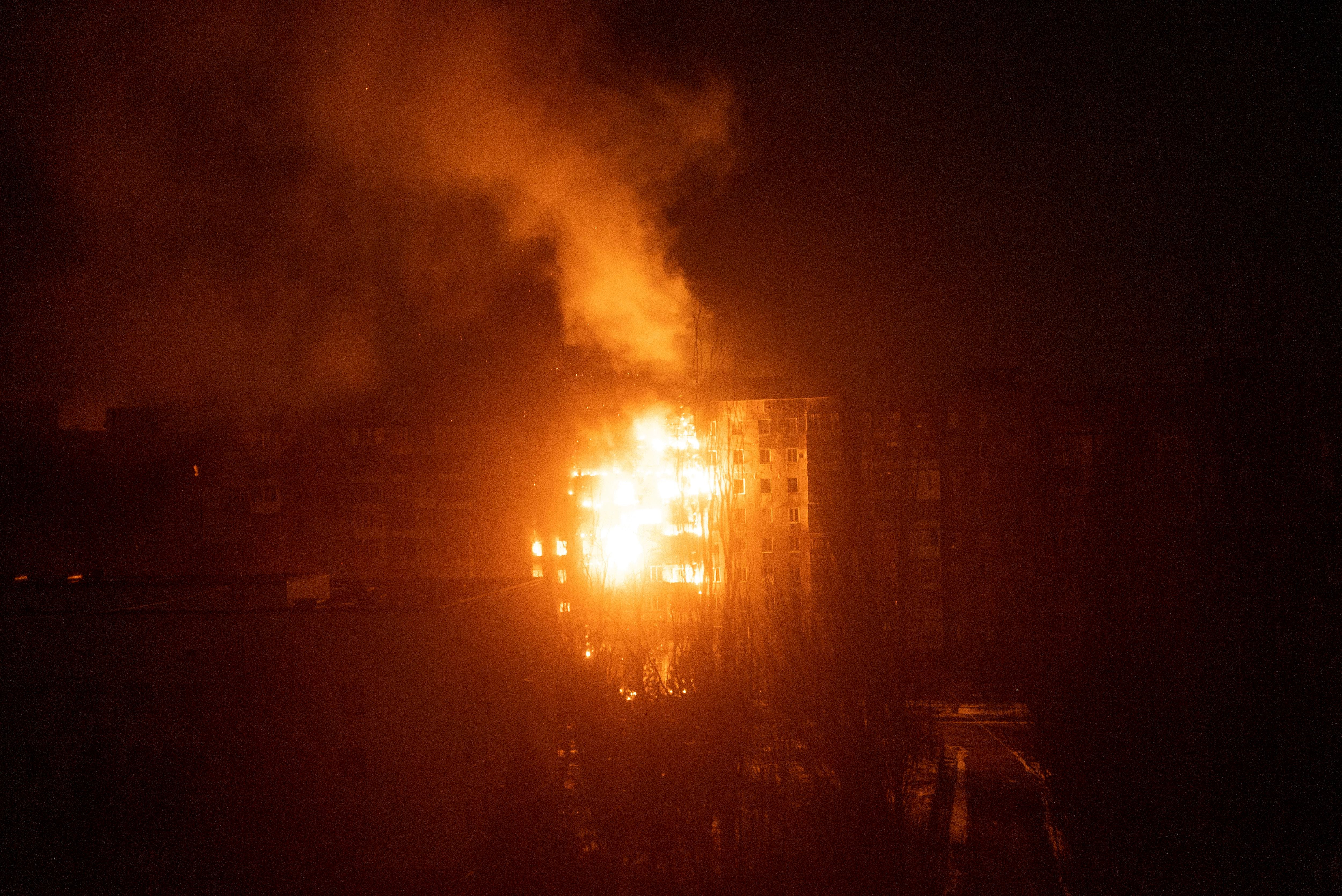
The signal was interrupted on March 3. We tried to broadcast our videos from the windows on the seventh floor of the hospital. It was from there that we saw what little was left of this middle-class city crumble.
The big Port City store was being ransacked. We're heading there between artillery fire and shrapnel. Dozens of people were running around and carrying carts full of electronics, food and clothing. A bomb exploded on the roof of the tent and I fell to the floor outside. I got nervous, waiting for another bombshell. I cursed a hundred times because the camera wasn't activated to film the scene. Then, a bomb fell on a building very close to where it was. I sought amparo. A teenager passed by me with an office chair on wheels, in which he carried electronic devices and boxes that fell. “My friends were there. The bomb exploded ten meters from where we were,” he told me. “I don't know what happened to them.”
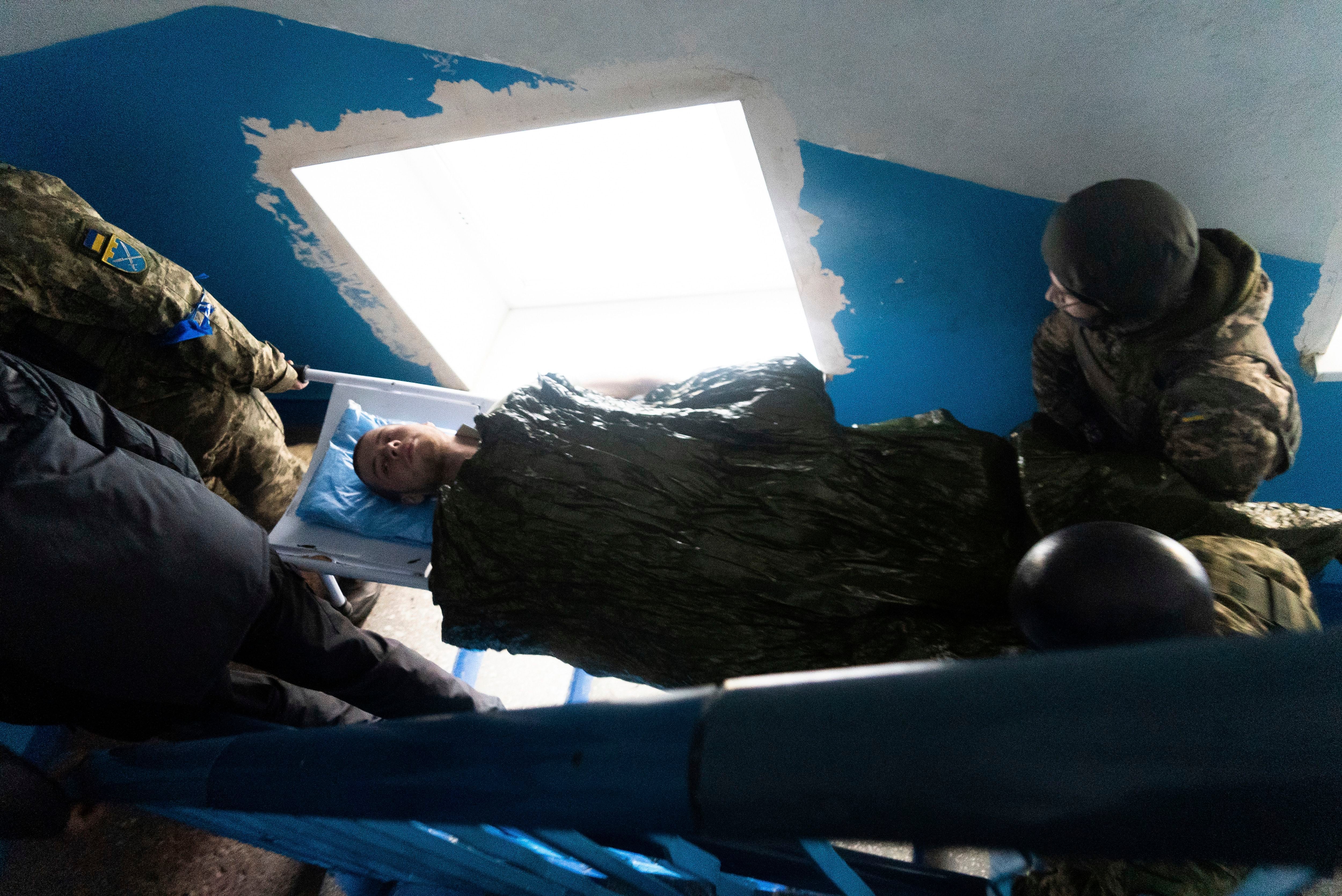
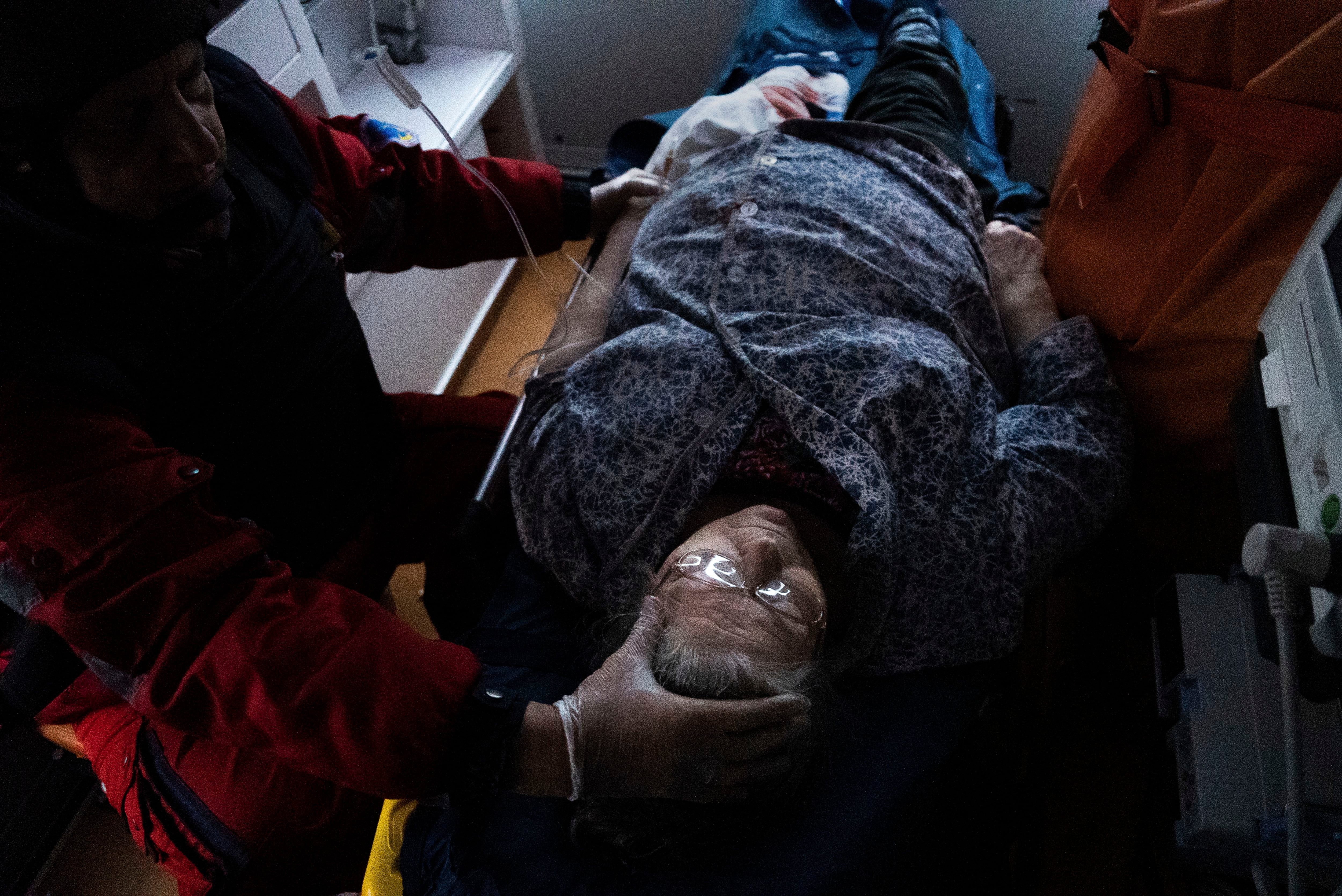
We hurried back to the hospital. Within 20 minutes the wounded started arriving, some of them in shopping carts.
For several days our only contact with the outside world was a satellite phone. And the only place where the phone worked was outside, next to a crater caused by a bomb. I would sit on the floor, shrink and try to connect.
People asked us when the war would end. I didn't know what to tell them.
Rumors circulated every day that the Ukrainian army would break the siege. But no one came.
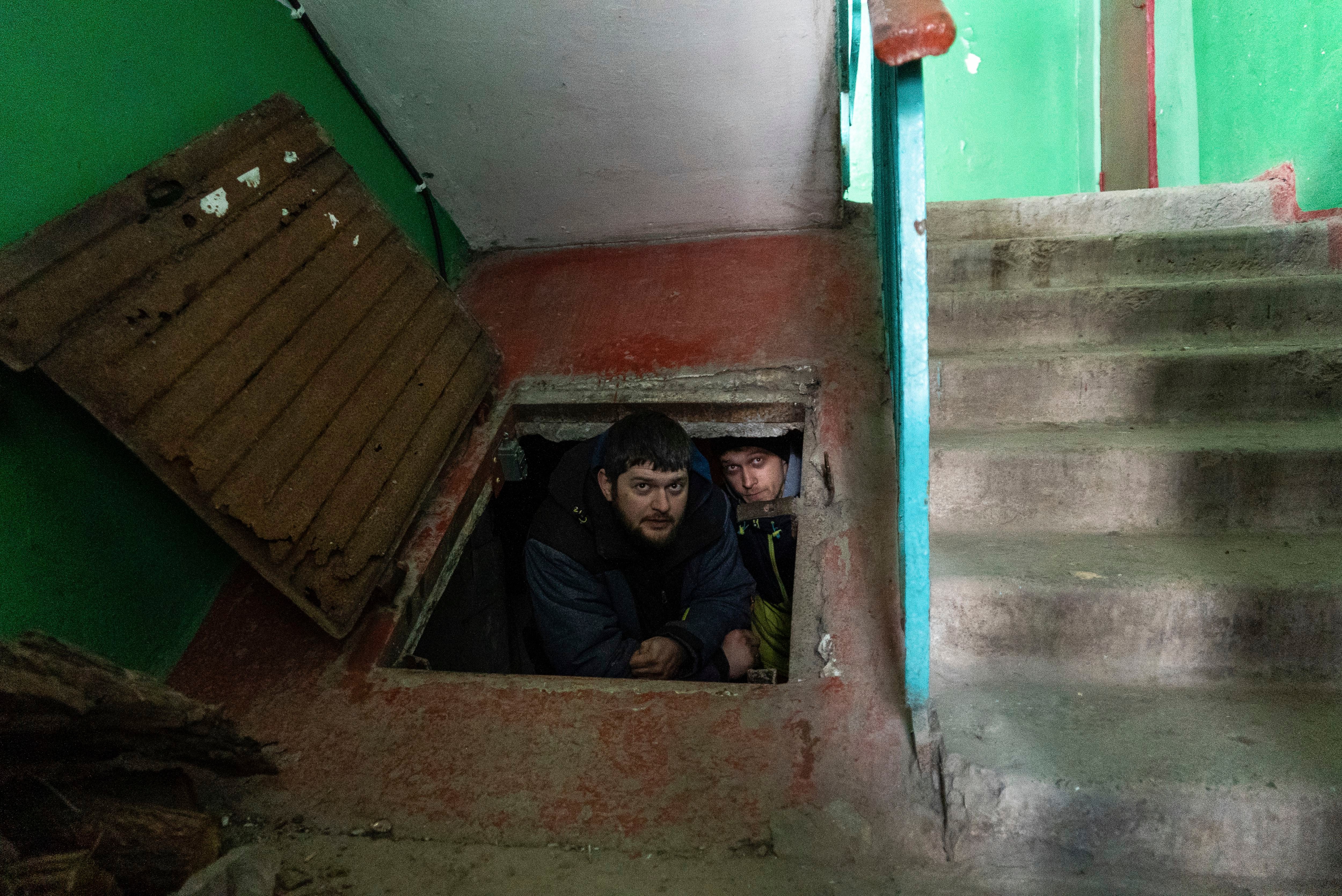
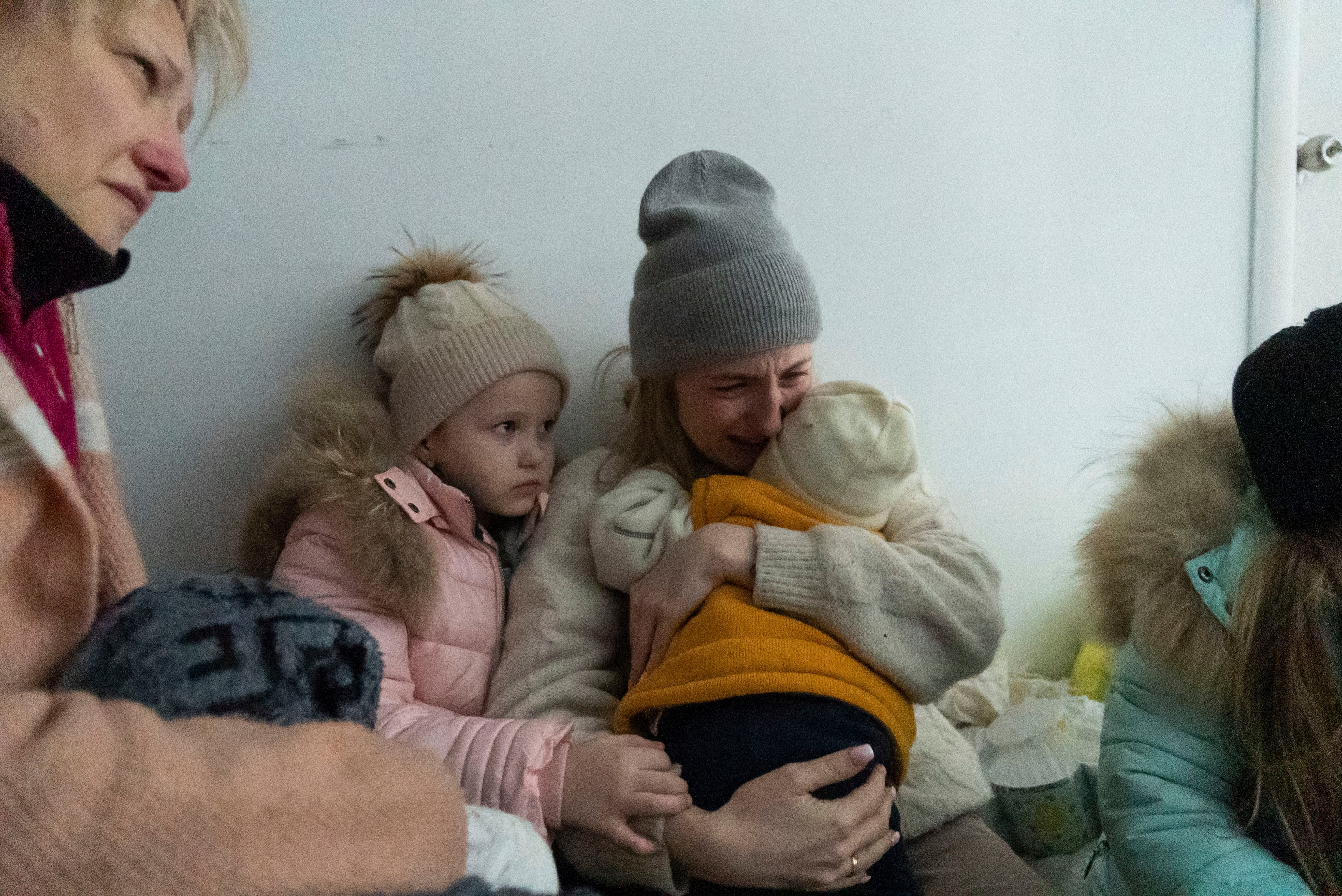

We rubbed shoulders with death in the hospital and in the streets, where there were corpses, dozens of them piled up in a mass grave. I saw so much death that I filmed almost without realizing what was going on around me.
On March 9, two aerial bombardments shattered the plastic that covered the windows of our van. I saw the fireball and instantly felt a severe pain in my ears, in my skin, in my face.
We saw plumes of smoke from a maternity hospital. When we arrived, rescue personnel were still removing the bloody body of a pregnant woman from the ruins. We had almost no battery left and there was no connection to send messages. In a matter of minutes, a curfew would begin to take effect. A policeman heard us talk about how to transmit the news of the attack on the hospital.
“This will change the course of the war,” he told us. And he took us to a place with electricity and an internet connection.
We had filmed a number of dead people, dead children, an endless line. I didn't understand why I thought more deaths could change anything. I was wrong.
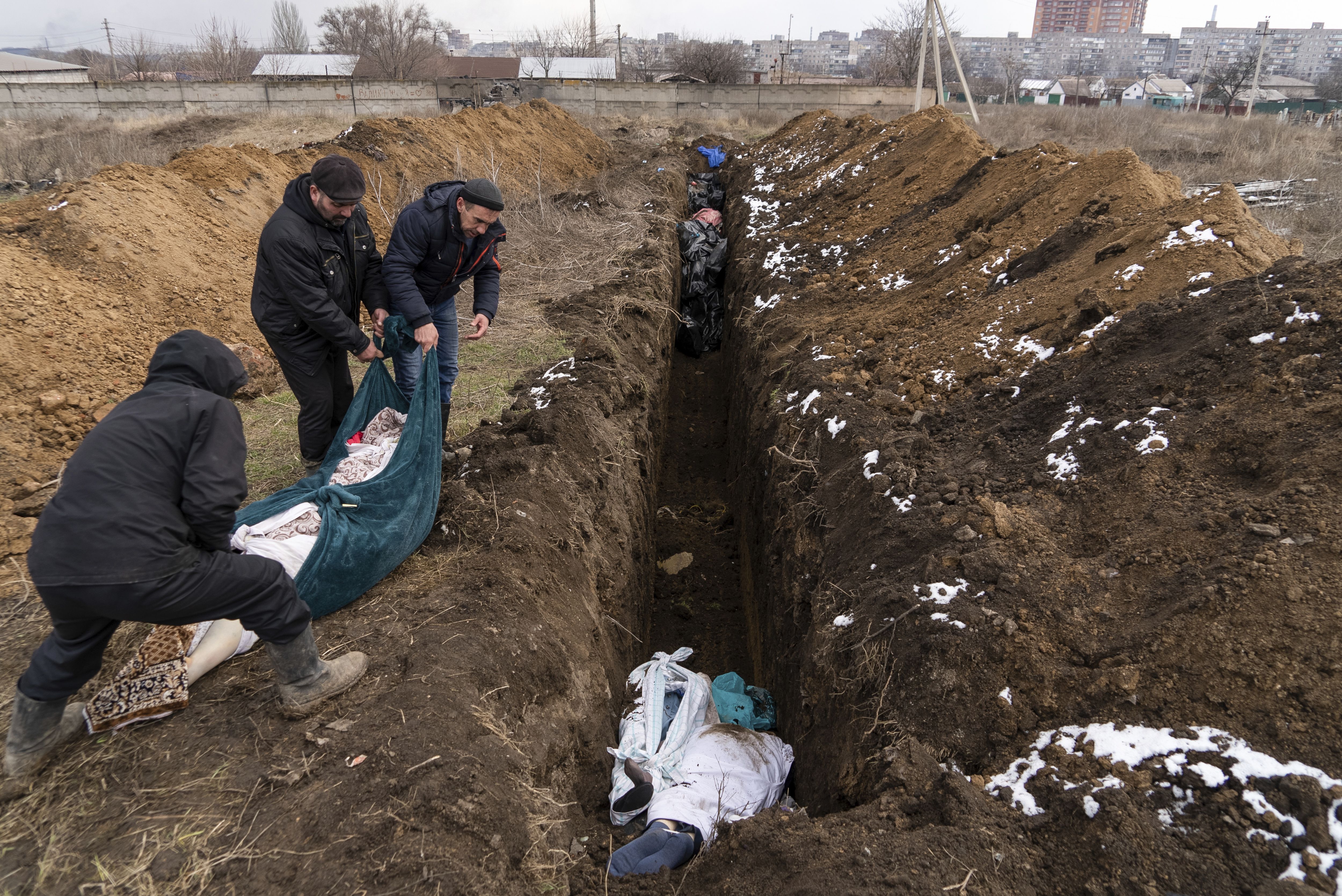
In the midst of darkness, we sent the images using three cell phones to speed up the process. It took us hours and we were done long after the curfew started. The bombings continued, but the agents who had assigned us to accompany us on our trips around the city waited patiently.
Our contact with the outside world was interrupted again.
We went to the basement of an empty hotel, with an aquarium full of dead goldfish. In our isolation, we knew nothing about the disinformation campaign waged by the Russians to raise doubts about our work.
The Russian embassy in London spread two tweets saying that the photos of the PA were fake and that the pregnant woman was an actress. The Russian ambassador showed copies of the photos at a meeting of the United Nations Security Council and repeated lies about the attack on motherhood.
In Mariupol, meanwhile, people asked us about the latest news of the war. Many people approached me and asked us to film them so that their families elsewhere knew they were alive.

At this point neither radio nor television worked in Mariupol. You could only listen to Russian broadcasts, full of lies. That the Ukrainians were holding Mariupol hostage, that they were shooting at buildings, that they were manufacturing chemical weapons. The propaganda was so intense that some people we spoke to believed it, despite what they saw with their own eyes.
A Soviet-style message was repeated: Mariupol is surrounded. Surrender your weapons.
On March 11, in a short and undetailed call, our editor asked us if we could find women who survived the attack on motherhood to prove that they existed. I understood that our footage had been so strong that it prompted a response from the Russian government.
We found them in a hospital on the front lines. Some with their babies, others giving birth. We also learned that the woman we filmed had lost her baby and also her life.
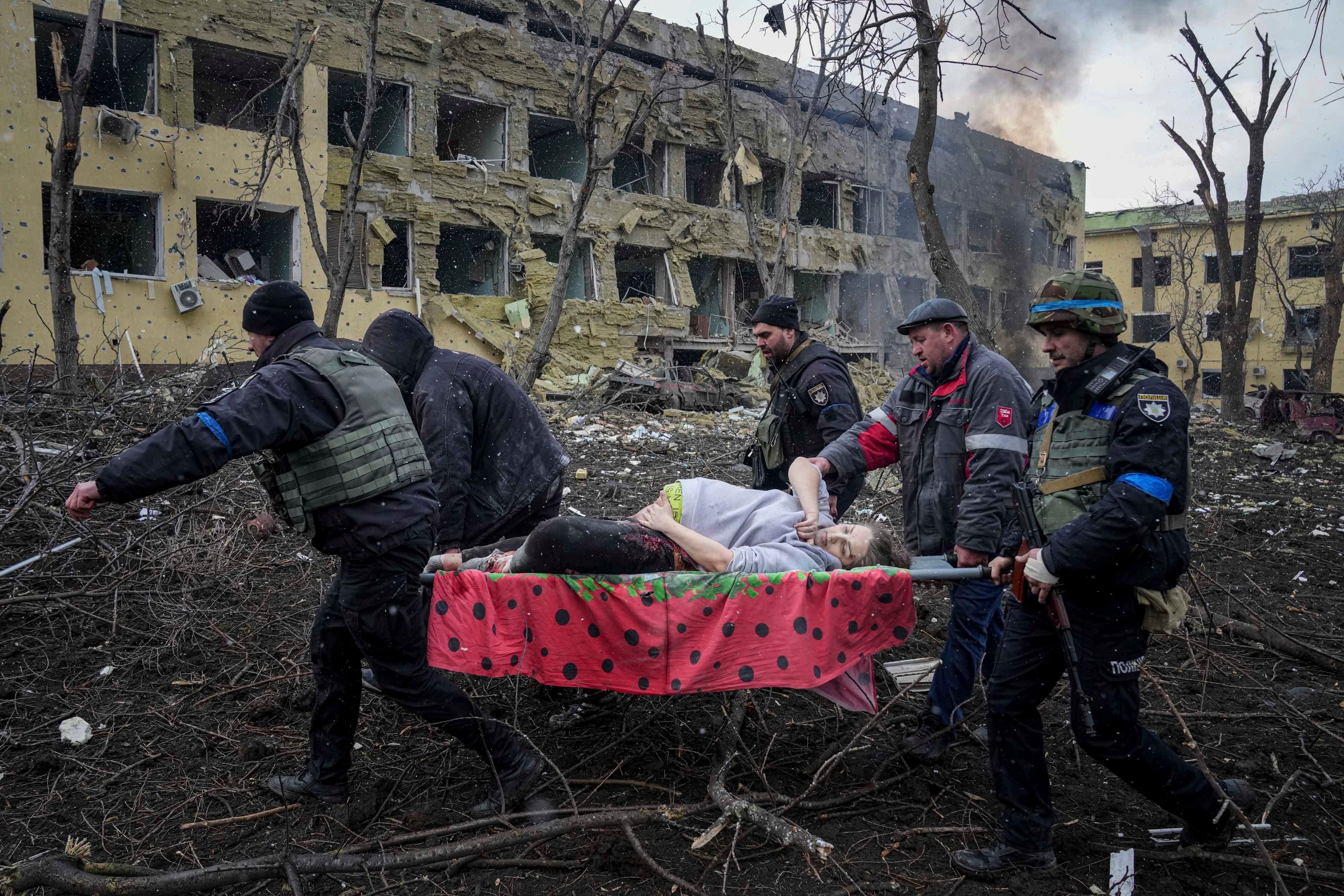
We went up to the seventh floor to broadcast the video over a weak connection. From there, I saw one tank after another advancing next to the hospital, all bearing the letter Z, the Russian emblem of war.
We were surrounded: Dozens of doctors, hundreds of patients and us.
The Ukrainian soldiers who had been protecting us in the hospital had disappeared. And on the way to our van, where we had food, water and equipment, there was a Russian sniper who had already injured a doctor who ventured out of the hospital.
The hours passed in the dark, with the sound of explosions all around us. It was then that the soldiers came looking for us, shouting in Ukrainian.

We didn't feel like we were being rescued. We felt they were taking us from one dangerous place to another. There were no more safe places in Mariupol. One could die at any time.
I felt very grateful to the soldiers, traumatized. I was ashamed because we were leaving. We got into a Hyundai with three members of a family and joined a queue of five-kilometer vehicles leaving the city. Some 30,000 people managed to leave Mariupol that day. So many that Russian soldiers did not have time to closely inspect vehicles with pieces of plastic on their windows.
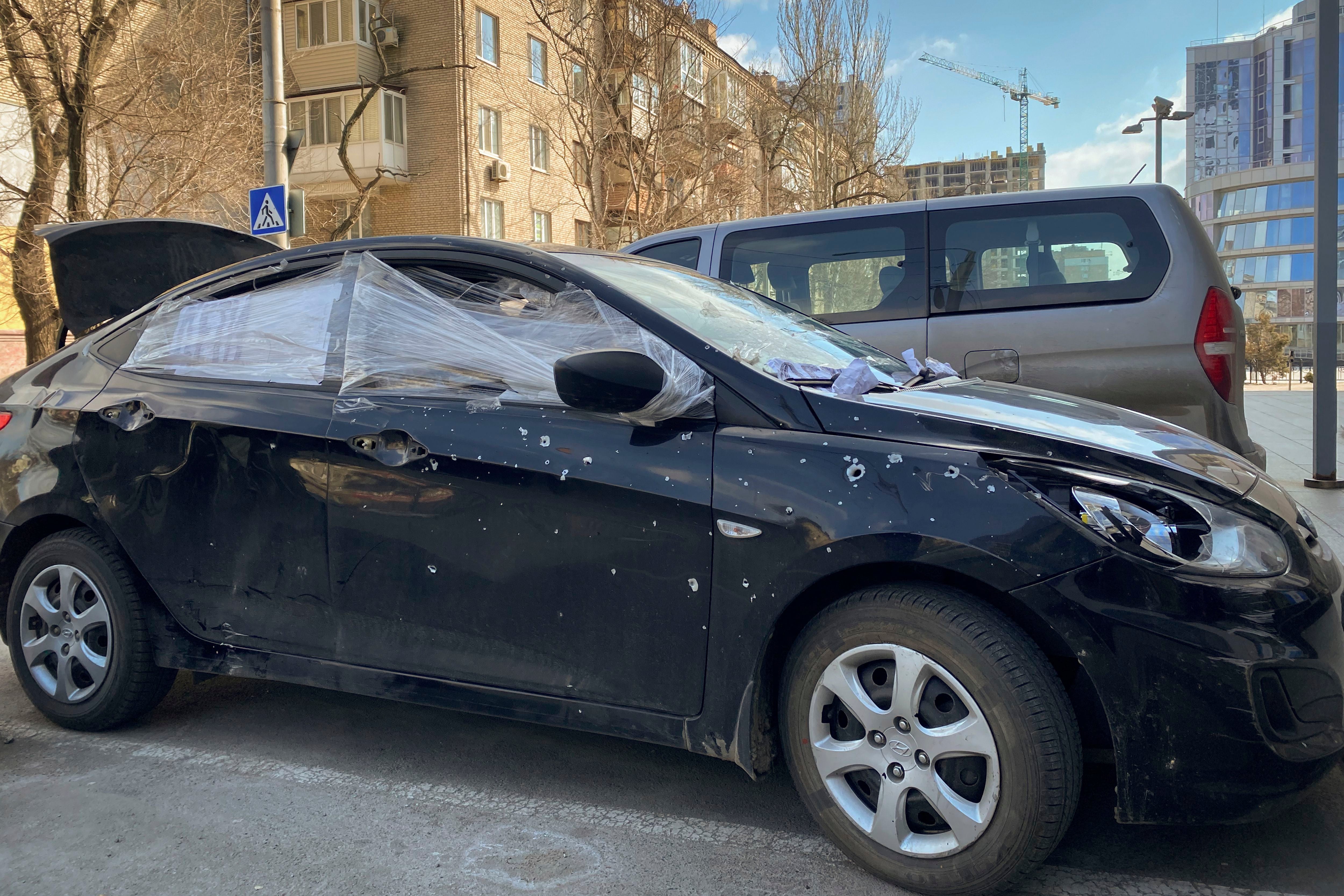
People were nervous. They fought and shouted. There was a plane that flew over and exploded. The earth was shaking.
We crossed 15 Russian checkpoints. In each one, the mother sitting in front begged aloud, as if for us to hear her.
With every checkpoint we passed, my hopes that we would get out of Mariupol alive diminished. He knew that, to get to the city, the Ukrainian army would have to cover too much ground. That wasn't going to happen.
At dawn we arrived at a bridge destroyed by the Ukrainians to stop the Russian advance. A caravan of about 20 Red Cross vehicles had been stranded there.
At the 15th checkpoint, the guards spoke Russian with a strong Caucasian accent. They ordered all vehicles to turn off their lights so as not to light the weapons and equipment they had there. I could barely make out the white Z painted on them.
Arriving at the 16th checkpoint, we heard voices. They spoke Ukrainian. I felt tremendous relief. The mother in the front seat began to cry. We had left Mariupol.
We were the last remaining journalists in Mariupol. Now there was no one.
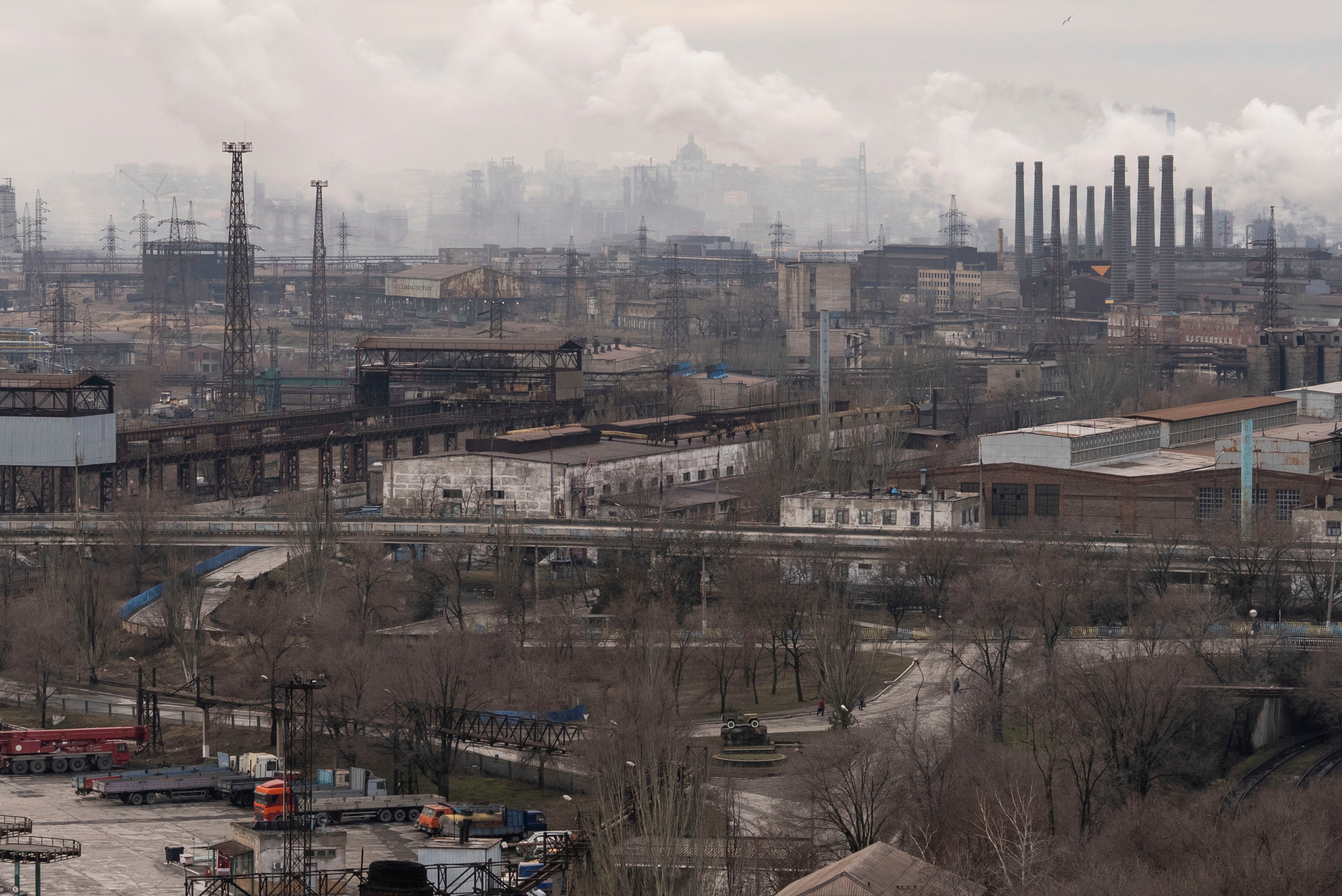
We are still raining messages from people who want to hear from their loved ones that we film and photograph. They write desperate and intimate letters to us, as if we were old acquaintances and could help them.
When the Russian bombing destroyed a theater in which hundreds of people had taken refuge last week, I knew exactly what it took to see if there were any survivors, to hear firsthand what it felt like to be locked up for hours under rubble. I know the building and the damaged houses around it. I also know people trapped down there.
And on Sunday, Ukrainian authorities said that Russia had bombed an art school with 400 people inside it in Mariupol.
But we couldn't film that anymore.
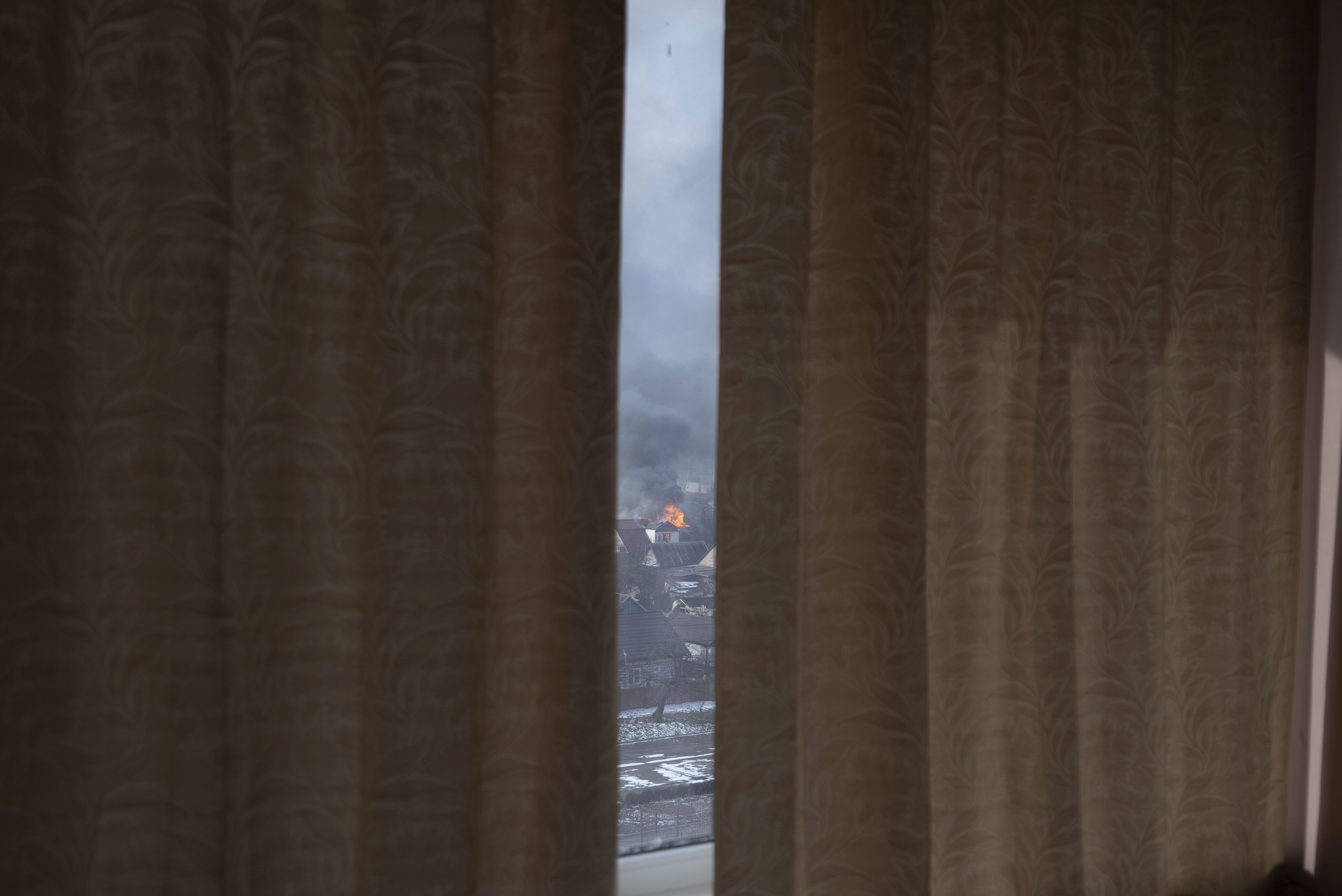
This is Chernov's account of Lori Hinnant, who wrote the note in Paris. Vasylisa Stepanenko collaborated in this office.
Keep reading:
Últimas Noticias
Debanhi Escobar: they secured the motel where she was found lifeless in a cistern
Members of the Specialized Prosecutor's Office in Nuevo León secured the Nueva Castilla Motel as part of the investigations into the case

The oldest person in the world died at the age of 119
Kane Tanaka lived in Japan. She was born six months earlier than George Orwell, the same year that the Wright brothers first flew, and Marie Curie became the first woman to win a Nobel Prize

Macabre find in CDMX: they left a body bagged and tied in a taxi
The body was left in the back seats of the car. It was covered with black bags and tied with industrial tape
The eagles of America will face Manchester City in a duel of legends. Here are the details
The top Mexican football champion will play a match with Pep Guardiola's squad in the Lone Star Cup

Why is it good to bring dogs out to know the world when they are puppies
A so-called protection against the spread of diseases threatens the integral development of dogs




